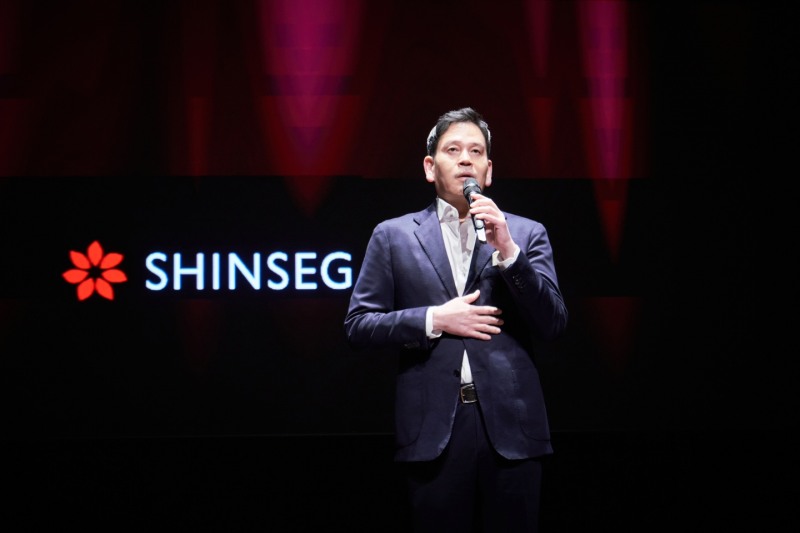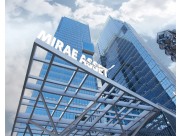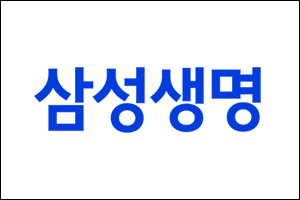
Emart posted an earnings surprise in the first quarter of this year. / Photo provided by Shinsegae Group
이미지 확대보기Emart announced on the 12th that its consolidated operating profit for the first quarter of this year reached KRW 159.3 billion, a 238.2% increase compared to the same period last year. Net sales amounted to KRW 7.2189 trillion, up 0.2% year-on-year.
This marks the first time since 2017, in terms of consolidated quarterly results, that Emart’s operating profit has more than tripled compared to the same period of the previous year. The company explained, “Strengthening core business competitiveness through continuous innovation and a profitability-focused management strategy proved effective.”
A major factor behind this achievement was Chairman Chung’s “determined resolve.” In 2023, Emart recorded a deficit for the first time since its founding. Taking responsibility, Chairman Chung initiated an emergency management system, even giving up his favored activities such as social media and golf.
He personally managed group and affiliate issues, actively communicating with the CEOs of each affiliate. He also implemented a performance-based personnel system for affiliate CEOs, following the principle of “reward and punishment.” In April last year, the CEO of Shinsegae Engineering & Construction was replaced, followed by the replacement of the CEOs of SSG.com and Gmarket in June.
The strict standards also applied to Chairman Chung himself. Emphasizing “responsible management,” he received an annual salary of about KRW 3.6 billion last year, a 2.4% decrease from the previous year. Shinsegae Group stated, “He reduced his salary to set an example in overcoming the difficult business environment.” When receiving shares from his mother, Lee Myung-hee, the group’s chairwoman, Chung also purchased them with his own funds, reaffirming his commitment to responsible management.
Harsh structural reforms were also carried out. Last year alone, two rounds of voluntary retirement were implemented to improve workforce efficiency. Additionally, the corporate supermarket Emart Everyday was merged, and profitability was improved through integrated purchasing and logistics. In terms of strengthening core business competitiveness, new concept stores such as “Starfield Market” and “Emart Food Market” were introduced, and efforts were made to open new warehouse-style discount stores, Traders, which are highly demanded by customers.
As a result, offline performance saw significant improvement. On a separate basis (Emart, Traders, No Brand, Emart Everyday), total sales reached KRW 4.6258 trillion and operating profit was KRW 133.3 billion, up 10.1% and 43.1% year-on-year, respectively. Notably, operating profit was the highest for the first quarter in seven years since 2018.
Traders, the warehouse-style discount store, played a significant role in driving this year’s performance as well. Looking at gross profit, Emart discount stores saw only a 0.3% increase, while Traders grew by 9.9%.
However, SSG.com and Gmarket remain Chairman Chung’s “sore spots.” These are the companies where he replaced CEOs through frequent personnel changes last year. Currently, SSG.com is led by CEO Choi Hoon-hak, known as a marketing expert within Shinsegae Group, while Gmarket is headed by CEO Jeong Hyeong-kwon, an e-commerce expert formerly with Alibaba.
In the first quarter of this year, SSG.com’s sales were KRW 356.8 billion, down 13.7% from the same period last year, and its operating loss expanded by KRW 4.2 billion to KRW 18.1 billion. Gmarket’s sales also fell by 21.4% to KRW 200.6 billion, and its operating loss increased by KRW 3.6 billion to KRW 12.1 billion.
SSG.com focused on strengthening delivery services this year, including seven-day-a-week delivery, same-day delivery, and guaranteed delivery, while expanding its delivery coverage to major metropolitan areas such as Seoul, the capital region, Chungcheong, Busan, and Daegu, which led to a wider deficit.
Gmarket saw a similar trend. Marketing activities and investments related to launching new services such as “Star Delivery” increased overall costs, resulting in greater operating losses.
Although both companies posted weak results, this is explained as a proactive investment to respond to fierce market competition. SSG.com stated, “We plan to grow into a highly trusted platform for all generations based on differentiated product competitiveness, delivery, and specialized services covering various categories.”
Gmarket explained, “In the second quarter, we will accelerate cooperation with key brand companies and sellers, and strengthen the ‘Seller Star Delivery’ service, which applies guaranteed delivery to general goods (3P), to enhance our competitiveness as an open market platform.”
Park seulgi (seulgi@fntimes.com)




























![현직 복당설 속 전문성·공천 경쟁…용산구청장 선거 3大 변수 [6·3지방선거]](https://cfnimage.commutil.kr/phpwas/restmb_setimgmake.php?pp=006&w=69&h=45&m=5&simg=2026021317461705072b372994c951245313551.jpg&nmt=18)
![기관 'SK하이닉스'·외인 '삼성전자'·개인 '한화에어로스페이스' 1위 [주간 코스피 순매수- 2026년 2월9일~2월13일]](https://cfnimage.commutil.kr/phpwas/restmb_setimgmake.php?pp=006&w=69&h=45&m=5&simg=2026021322573704878179ad43907118235313.jpg&nmt=18)
![기관 '알테오젠'·외인 '삼천당제약'·개인 '에코프로비엠' 1위 [주간 코스닥 순매수- 2026년 2월9일~2월13일]](https://cfnimage.commutil.kr/phpwas/restmb_setimgmake.php?pp=006&w=69&h=45&m=5&simg=2026021323061707087179ad43907118235313.jpg&nmt=18)
![12개월 최고 연 3.25%…SC제일은행 'e-그린세이브예금' [이주의 은행 예금금리-2월 3주]](https://cfnimage.commutil.kr/phpwas/restmb_setimgmake.php?pp=006&w=69&h=45&m=5&simg=20260213084839016295e6e69892f222110224112.jpg&nmt=18)
![12개월 최고 연 4.95%, 제주은행 'MZ 플랜적금' [이주의 은행 적금금리-2월 3주]](https://cfnimage.commutil.kr/phpwas/restmb_setimgmake.php?pp=006&w=69&h=45&m=5&simg=20260213085723019015e6e69892f222110224112.jpg&nmt=18)

![24개월 최고 연 3.10%…부산은행 '더 특판 정기예금' [이주의 은행 예금금리-2월 3주]](https://cfnimage.commutil.kr/phpwas/restmb_setimgmake.php?pp=006&w=69&h=45&m=5&simg=20260213085033090215e6e69892f222110224112.jpg&nmt=18)
![천상영 신한라이프 대표, 수익성 저하 불구 지주 기여도 1위…올해 손해율 관리·이익효율성 제고 [금융사 2025 실적]](https://cfnimage.commutil.kr/phpwas/restmb_setimgmake.php?pp=006&w=69&h=45&m=5&simg=20260103180551057718a55064dd122012615783.jpg&nmt=18)












![[그래픽 뉴스] 워킹맘이 바꾼 금융생활](https://cfnimage.commutil.kr/phpwas/restmb_setimgmake.php?pp=006&w=298&h=298&m=1&simg=202602021638156443de68fcbb3512411124362_0.jpg&nmt=18)
![[그래픽 뉴스] 매파·비둘기부터 올빼미·오리까지, 통화정책 성향 읽는 법](https://cfnimage.commutil.kr/phpwas/restmb_setimgmake.php?pp=006&w=298&h=298&m=1&simg=202601281456119025de68fcbb3512411124362_0.jpg&nmt=18)
![[그래픽 뉴스] 하이퍼 인플레이션, 왜 월급이 종잇조각이 될까?](https://cfnimage.commutil.kr/phpwas/restmb_setimgmake.php?pp=006&w=298&h=298&m=1&simg=202601141153149784de68fcbb3512411124362_0.jpg&nmt=18)
![[그래픽 뉴스] 주식·채권·코인까지 다 오른다, 에브리싱 랠리란 무엇일까?](https://cfnimage.commutil.kr/phpwas/restmb_setimgmake.php?pp=006&w=298&h=298&m=1&simg=202601071630263763de68fcbb3512411124362_0.jpg&nmt=18)
![[그래픽 뉴스] “이거 모르고 지나치면 손해입니다… 2025 연말정산 핵심 정리”](https://cfnimage.commutil.kr/phpwas/restmb_setimgmake.php?pp=006&w=298&h=298&m=1&simg=202601061649137526de68fcbb3512411124362_0.jpg&nmt=18)
![[신간] 고수의 M&A 바이블](https://cfnimage.commutil.kr/phpwas/restmb_setimgmake.php?pp=006&w=81&h=123&m=5&simg=2025091008414900330f8caa4a5ce12411124362.jpg&nmt=18)
![[신간] 리빌딩 코리아 - 피크 코리아 극복을 위한 생산성 주도 성장 전략](https://cfnimage.commutil.kr/phpwas/restmb_setimgmake.php?pp=006&w=81&h=123&m=5&simg=2025032814555807705f8caa4a5ce12411124362.jpg&nmt=18)
![[서평] 추세 매매의 대가들...추세추종 투자전략의 대가 14인 인터뷰](https://cfnimage.commutil.kr/phpwas/restmb_setimgmake.php?pp=006&w=81&h=123&m=5&simg=2023102410444004986c1c16452b0175114235199.jpg&nmt=18)


![[신간] 이게 화낼 일인가?](https://cfnimage.commutil.kr/phpwas/restmb_setimgmake.php?pp=006&w=81&h=123&m=5&simg=2026010610254801367f8caa4a5ce12411124362.jpg&nmt=18)

![[AD] 현대차, 글로벌 안전평가 최고등급 달성 기념 EV 특별 프로모션](https://cfnimage.commutil.kr/phpwas/restmb_setimgmake.php?pp=006&w=89&h=45&m=1&simg=20260106160647050337492587736121125197123.jpg&nmt=18)
![[AD] 현대차 ‘모베드’, CES 2026 로보틱스 부문 최고혁신상 수상](https://cfnimage.commutil.kr/phpwas/restmb_setimgmake.php?pp=006&w=89&h=45&m=1&simg=20260105103413003717492587736121125197123.jpg&nmt=18)
![[AD] 기아 ‘PV5’, 최대 적재중량 1회 충전 693km 주행 기네스 신기록](https://cfnimage.commutil.kr/phpwas/restmb_setimgmake.php?pp=006&w=89&h=45&m=1&simg=20251105115215067287492587736121125197123.jpg&nmt=18)
![[카드뉴스] KT&G, 제조 부문 명장 선발, 기술 리더 중심 본원적 경쟁력 강화](https://cfnimage.commutil.kr/phpwas/restmb_setimgmake.php?pp=006&w=89&h=45&m=1&simg=202509241142445913de68fcbb3512411124362_0.png&nmt=18)
![[AD]‘황금연휴에 즐기세요’ 기아, ‘미리 추석 페스타’ 이벤트 실시](https://cfnimage.commutil.kr/phpwas/restmb_setimgmake.php?pp=006&w=89&h=45&m=1&simg=20250903093618029117492587736121166140186.jpg&nmt=18)



